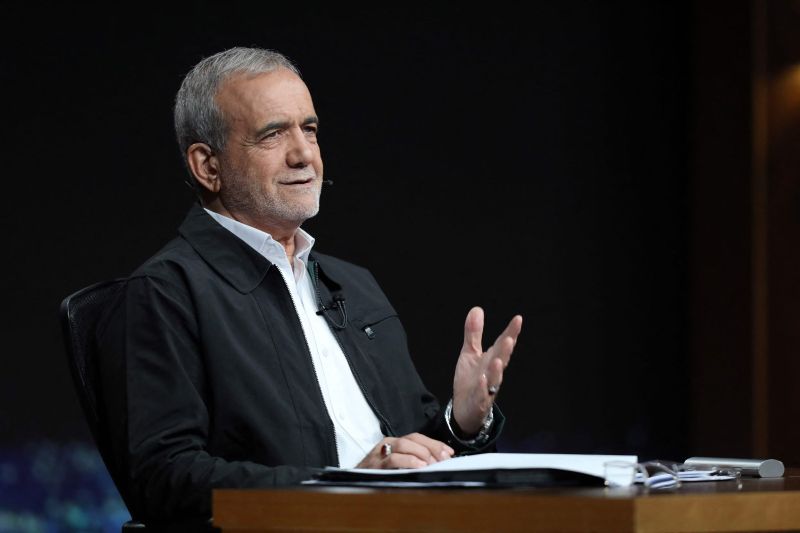Centrist Masoud Pezeshkian became the ninth President of Islamic Republic of Iran defeating hardliner Saeed Jalili in the run-off on July 5. Pezeshkian secured nearly 16.4 million of the more than 30 million votes cast; Jalili secured nearly 13.5 million, according to the official count. The election was necessitated by the death of President Ebrahim Raisi in a helicopter crash earlier this year.
Pezeshkian campaigned on a promise to ease tensions with the West and is supportive of a nuclear deal. The voter participation in the run-off was 49.8% after a historic low turnout on June 28 ballot with over 60% voters abstaining. Russian President Vladimir Putin was among several world leaders to congratulate Pezeshkian, but Western leaders were yet to respond, reports Al Jazeera.
Tensions with the West have been high since abandoning the nuclear deal and consequent sanctions. Iran has been accused of supporting Hezbollah, Hamas, and Houthis during the Israel-Hamas conflict. Israel and Iran nearly went to war in April this year.
Seen as a centrist and reform minded, Pezeshkian, a heart surgeon, who has been a health minister under reformist President Mohammad Khatami, wants the revival of a 2015 deal with world powers in which Iran agreed to limitations on its nuclear enrichment program in exchange for lifting economic sanctions. Jalili, a hardliner, had been a vocal critic of the nuclear accord, takes tough positions towards the US and is a strong advocate for religious laws including mandatory hair coverings for women, reports The Strait Times. Jalili had advocated stronger relations with Russia and China.
Public mistrust in Iran’s leadership has been high. The voter turnout in phase 1 of presidential vote was very low. Dissatisfaction with the religious establishment, corruption, harsh and oppressive laws, and dire state of the economy have led to frequent protests by mostly middle class, educated and urban Iranians, adds The Strait Times. The death of Mhasa Amini led to massive protests across the nation in 2022.
Pezeshkian is likely to face resistance from a parliament dominated by ultra-conservatives critical of the nuclear deal.
The ultimate power in Iran continues to rest with the Supreme Leader Ayatollah Ali Khamenei. A nuclear deal and lifting of sanctions could boost Iran’s economy and be good for the regime’s stability. The Ayatollah has urged the new President to continue Raisi’s policies, a sign that Pezeshkian may face some resistance if he tries to soften Iran’s posture towards the US, says The Strait Times.
Disclaimer: The article has reference to open sources including The Strait Times and Al Jazeera.






